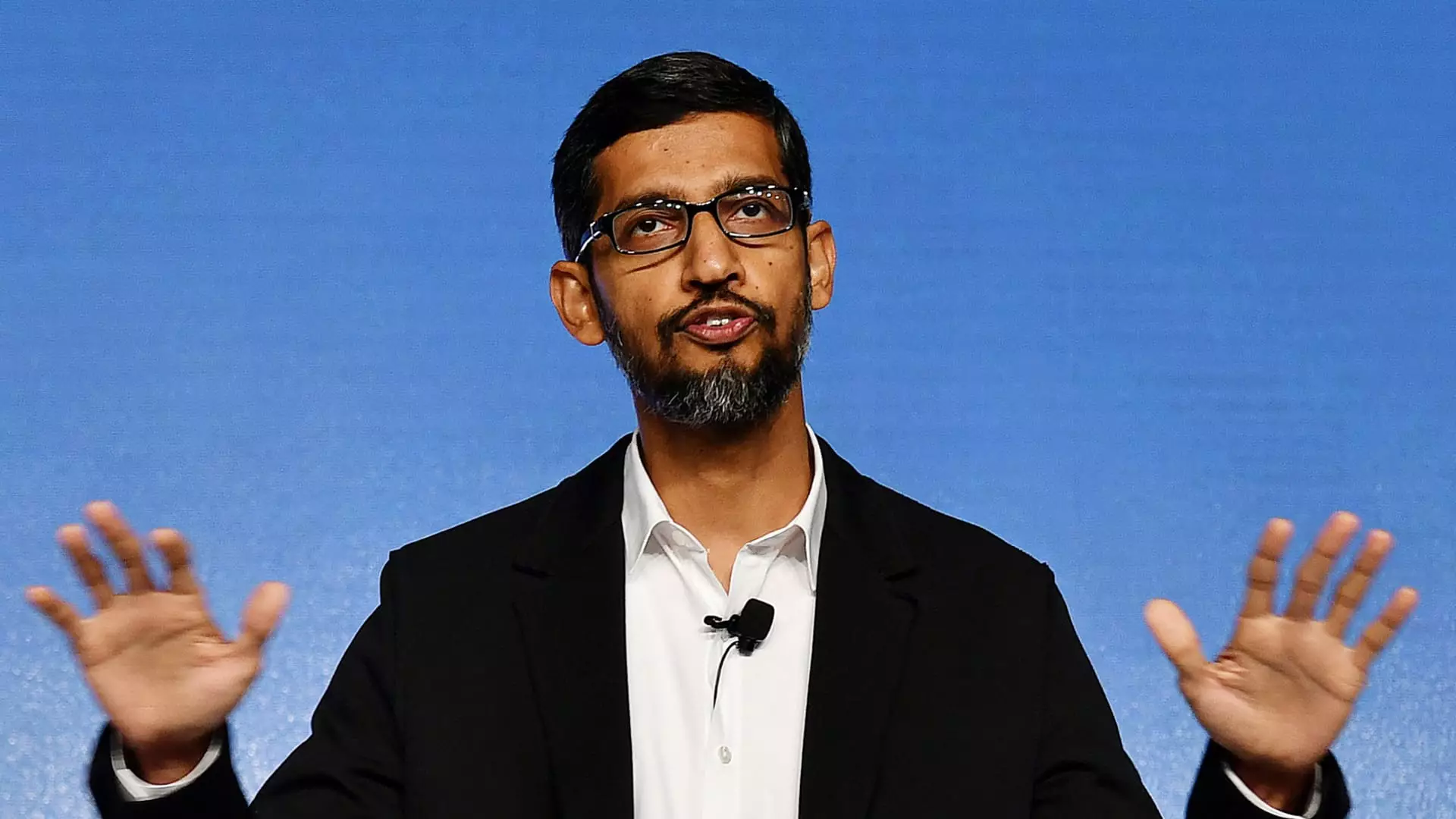In recent times, the relationship between technology companies and their employees has become increasingly scrutinized, especially regarding internal political expressions. Google, a dominant player in the tech industry, has found itself grappling with this issue as it navigates employee communication within its internal platforms. Following a series of controversial policies aimed at moderating political discourse among employees, a closer inspection of these measures reveals more than just an attempt to maintain workplace harmony; they reflect broader implications for freedom of speech and corporate governance.
At the heart of Google’s actions is a balancing act between fostering a healthy workplace and maintaining its image as a reliable source for impartial information. As political events unfold, particularly in a charged election period, Google has emphasized the importance of keeping political views out of its core workplace discussions. This stems from directives issued by Google’s leadership, including CEO Sundar Pichai, who has reiterated that employees must keep personal political opinions off internal platforms like Memegen. Pichai’s memo emphasized a commitment to neutrality, reminding employees that the company aids users seeking trustworthy information.
While the intent behind these guidelines may be laudable, they raise legitimate concerns about suppressing employee voices, particularly in a diverse workforce where personal beliefs can be deeply intertwined with one’s sense of identity. Notably, the restrictions seem to have intensified since 2019, reflecting a significant transformation in the company’s cultural environment. Critics argue that such sweeping measures could be perceived as authoritarian, stifling open dialogue that’s crucial for innovation and employee satisfaction.
As attempts to manage internal communication continue, Google has laid out expansive regulations governing the use of its internal platforms, particularly targeting political discourse. The newly established guidelines prohibit the sharing of any personal political opinions on Memegen, even extending to international affairs that lack direct ties to Google itself. Employees received warnings that violations could lead to account bans after repeated infractions. This crackdown can be viewed as an extension of previous policies that sought to minimize inflammatory exchanges.
In a world increasingly dominated by social media and online interactions, the use of algorithms and artificial intelligence to enforce these rules raises questions about the effectiveness and fairness of how content is moderated. Employees have reported instances of memes being removed without clear justification, resulting in frustration over perceived injustices in content moderation practices. Such concerns beckon the relevance of employee sentiment when implementing automated systems that govern speech, as algorithmic decisions may not always capture the nuances of human expression.
The backdrop to Google’s current internal policies cannot be divorced from historical tensions surrounding free speech in the workplace. A notable incident came in 2019 when a former employee alleged that the corporate environment stifled conservative viewpoints, culminating in a settlement that mandated the company to publicize employee rights regarding workplace discussions. This event serves as a stark reminder that tech corporations are not immune to the complexities of public discourse and dissent.
The crux of these situations accelerates questions about how tech giants influence not only their own ecosystems but also broader societal trends. As political affiliations increasingly permeate workplace culture, a company’s ability to govern these affiliations through policy could set precedents for other organizations navigating similar dilemmas.
Google’s ongoing attempts to regulate internal political discussions encapsulate a broader challenge within corporate culture: How do organizations create spaces that are simultaneously productive and genuinely inclusive? The measures taken by Google highlight a tension between maintaining a nonpartisan workspace while still fostering an environment where employees feel free to express their opinions.
As Google safeguards its brand identity as a provider of accurate and impartial information, it must also grapple with the ramifications of its content moderation strategies. In balancing these elements, the company faces the arduous task of respecting individual expression while promoting a coherent corporate ethos. The dialogue surrounding these issues is far from finished; it continues to evolve as employees and the public grapple with the impacts of stringent internal policies on freedom of speech and corporate accountability.


Leave a Reply